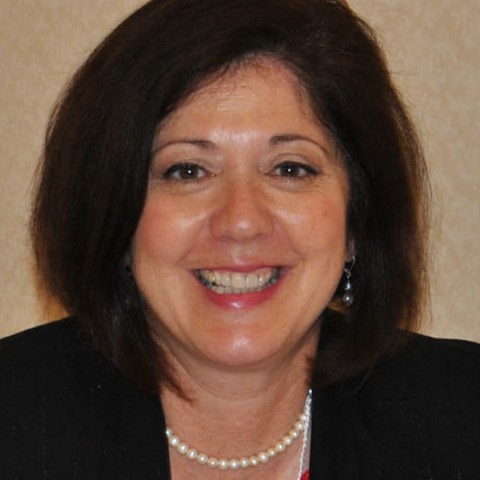Moving beyond the tap on the shoulder: new online resource aims to empower women in leadership of their teacher organizations
Back in high school when I ran for a seat on the students’ council, a group of young women showed up at my doorstep one evening to help me with crafting catchy slogans and jazzy campaign posters. I remember thinking “Wow!” because I had not even asked for their help! Their unexpected support boosted my morale as I witnessed first-hand the power of women working together for a common goal. Funny enough, I can’t recall winning the election, but I fondly remember the fun we had working together that evening in the fall.
Fast forward 30 years, to my time working as Director of Communications at the Canadian Teachers’ Federation (CTF-FCE), from January 2000 to October 2018. I was fortunate to have had the privilege of working alongside wonderful women within the CTF‑FCE, its member organizations, Education International and the broader labour movement. Here again, I witnessed the sample principle of collaboration between women as I did back that evening for my high school students’ council election campaign.
I recently saw an article posted in Forbes magazine “Power of the Pack: Women who support women are more successful”, which made reference to recent Harvard University research suggesting that a way for women to overcome some of the cultural and systemic hurdles is “to form close connections with other women, who can share experiences from women who have been there, done that-from how to ask for what you’re worth to bringing your unique talents to leadership.”
Throughout my 18+ years, I have viewed the CTF-FCE as a catalyst for change and for connecting women teacher members and leaders nationally. Here’s why.
When I first arrived at the CTF-FCE, the Status of Women Advisory Committee had been dissolved for years. It wasn’t until 2006 when it was re-established by delegates at the organization’s Annual General Meeting. One of the Committee’s goals: “advise the Executive Committee on long-term directions, strategies, policies and regulations that relate to the status of women in education.”
It only made sense to resurrect this committee since women make up nearly 72% of the K-12 teaching profession in Canada. Plus, women were (and still are) underrepresented at board of directors meetings and annual general meetings.
It is through its Advisory Committee on the Status of Women, the Women’s Symposia and Women’s Caucuses that the CTF-FCE brings member organizations together to facilitate the exchange of ideas, strategies and policy development.
After some internal reorganization in 2009, I was assigned administrative liaison for the Advisory Committee, a role I proudly held until my retirement. Although I enjoyed my role in communications, the work supporting the Status of Women Committee was the highlight of my career at the Federation, not only because of the depth and breadth of knowledge I acquired but because of the wonderful women I met along this journey.
I witnessed the building of strong circles of trust and cooperation between teacher leaders, teacher members, member organizations and the CTF-FCE staff. Yes, there were challenges and hurdles along the way, as we are all human beings. But at the end of the day, everyone had their hearts set on advancing and promoting the rights of women and girls.
Here are some examples in which member organizations were exceptionally supportive and involved:
- Annual CTF Women’s Symposia cover a wide spectrum of themes such as social justice, human rights, racism, violence against women and girls, human trafficking, the realities of post-modern families, and, of course, women in union leadership;
- Development of policy and resolutions through a gender lens (simply search the term “gender” in the CTF Handbook);
- CTF-FCE International and Social Justice Program;
- Equal Voice’s historic 2017 Daughters of the Vote; and
- Participation in the trade union delegation at the sessions of the Commission on the Status of Women of the United Nations.
And now, a new addition to this roster of collaboration and support:
Introducing Fem•Lead•Fém, a comprehensive web-based women’s leadership resource recently launched at the CTF-FCE Women Symposium “Women Deliver Public Education” on June 3 in Vancouver.
It was last year at the 2018 Symposium where the idea for this resource first saw the light of day. The event gathered over 80 women teacher members and leaders in Charlottetown, to exchange ideas and strategies focused on election campaigns, ways to seek work/life balance, effective collective bargaining strategies and to learn more about mentorship initiatives to attract younger women to the fold.
The new CTF-FCE resource picks up on the Equal Voice slogan “Be Her. Support Her. Celebrate Her”. Not only does it provide a pragmatic approach for running effective election campaign strategies, it offers inspirational advice in video testimonials from women teacher leaders who have “been there, done that and bought the t-shirt”. Over time, the bilingual resource is going to grow and expand as a reliable bank of ideas and strategies customized for women in teacher organizations.
By inspiring more women to run for office within their teacher organizations, we hope to increase the representation of women at the political helm of CTF-FCE and member organizations. Tapping women on the shoulder is certainly one way to encourage women to run. But we need to support them with the tools and strategies to be more effective.
As for me, I plan to continue to support women who are running for office in my community. During last fall’s municipal election campaign, I supported candidate Emilie Coyle, by knocking on doors and delivering flyers. Once again, the circle of collaboration and support between the women on her campaign team was inspirational. I have met some brilliant young women who are picking up the mantle from my generation. Although Emilie didn’t get elected, she did give the incumbent some serious cause for concern by significantly closing the vote results gap from the previous municipal election.
Not long after I started writing this article, Emilie’s political campaign organizer reached out to me and asked to work on a campaign of another phenomenal woman in my riding in the run-up to the next federal election. And so, I will work again with the same team of determined women in support of Angella MacEwen, senior economist with the Canadian Union of Public Employees who is set to run for the NDP.
So a big thank you to those young women who supported me back in 1973 – Bonnie, Louise and Moira. Thank you to the many women leaders who have made such an impact on my life.

Francine Filion, former Director of Communications at the CTF-FCE, from 2000 until 2018.


